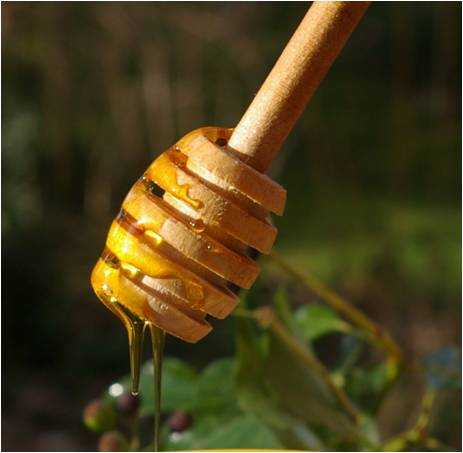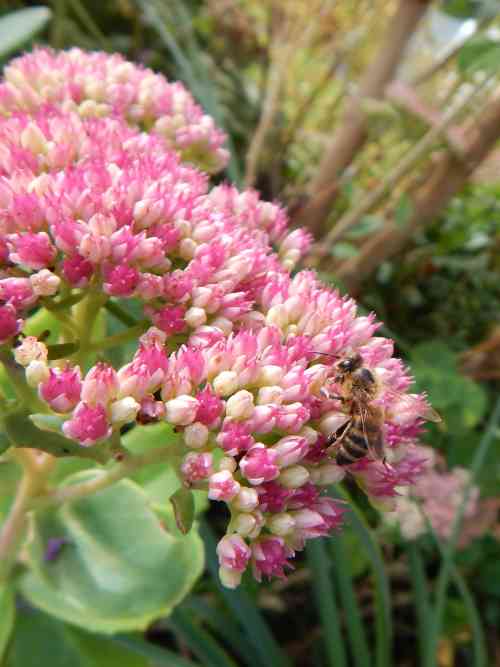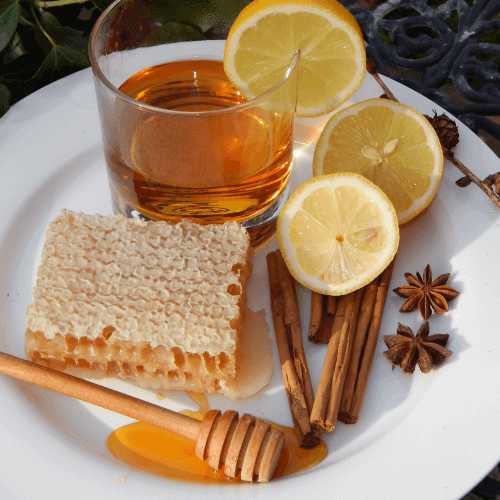Honey Nutrition
This is a basic summary of honey nutrition.
There is much more detail on my page comparing honey with sugar. It breaks down:
- vitamin,
- mineral,
- protein,
- amino acid,
- calorie content.
It's
useful to compare honey and sugar, because basic sugar offers only
carbohydrate value to the diet, and nothing else, although honey has a lot of calories, so it is unwise to eat a lot of it if you are on a weight loss diet.
There is also some useful content about the energy value of honey in my ‘Calories in Honey’ page.
Honey Nutritional Values

Here it is, a very basic summary of the nutritional properties of a typical blended honey:
100g of honey contains:
Calories: 307
Fat: Nil
Sodium: Nil/trace
Protein: 0.4g
Total carbohydrate: 76.4g
(1 tablespoon provides approximately 6% of the recommended daily value of carbohydrate, based on a diet of 2000 daily calories)
Various minerals, vitamins and enzymes.
NOTE, honey products vary slightly in nutritional value! There may be subtle differences in the honey product itself, depending on the diet of the honey bees, and whether the honey has been filtered or not to remove things like pollen, as well as natural debris.
Honey bees may have fed from a range of blossoms and floral sources, or they may have fed primarily from one crop – perhaps if the bees have been used to providing pollination services for farmers over vast acres of one crop type, for example. These foraging differences may also manifest in differing levels of sweetness.
Not all honeys are the same - choose wisely

Few people think about the ethics of buying honey! Yet bees are going through a hard time, and we need to ensure we take care of the ones we have.
Product sold as honey, which is not pure honey, or which is contaminated and sold cheaply, drives down prices and makes life difficult for ethical beekeepers selling the real thing.
My recommendation to you, is to purchase locally if possible, or buy from a supplier you can trust, perhaps even from a delicatessen or health store.
If product is very cheap there is probably a reason for it. Where is it from, what does it contain, can you trust that it won't be contaminated? There have been stories of imported, contaminated honey making its way onto the shelves and for sale over the internet, from various outlets.
Anyone interested in honey nutrition, I'm sure, will want to know what their jar of 'honey' really contains. Always check the ingredients carefully to ensure there are no added extras, such as corn syrup.
If you found this page helpful or interesting, I'd really be grateful if you would share it with others - if not this page, perhaps another, such as Gardening For Bees.
Thank you so much :) .

